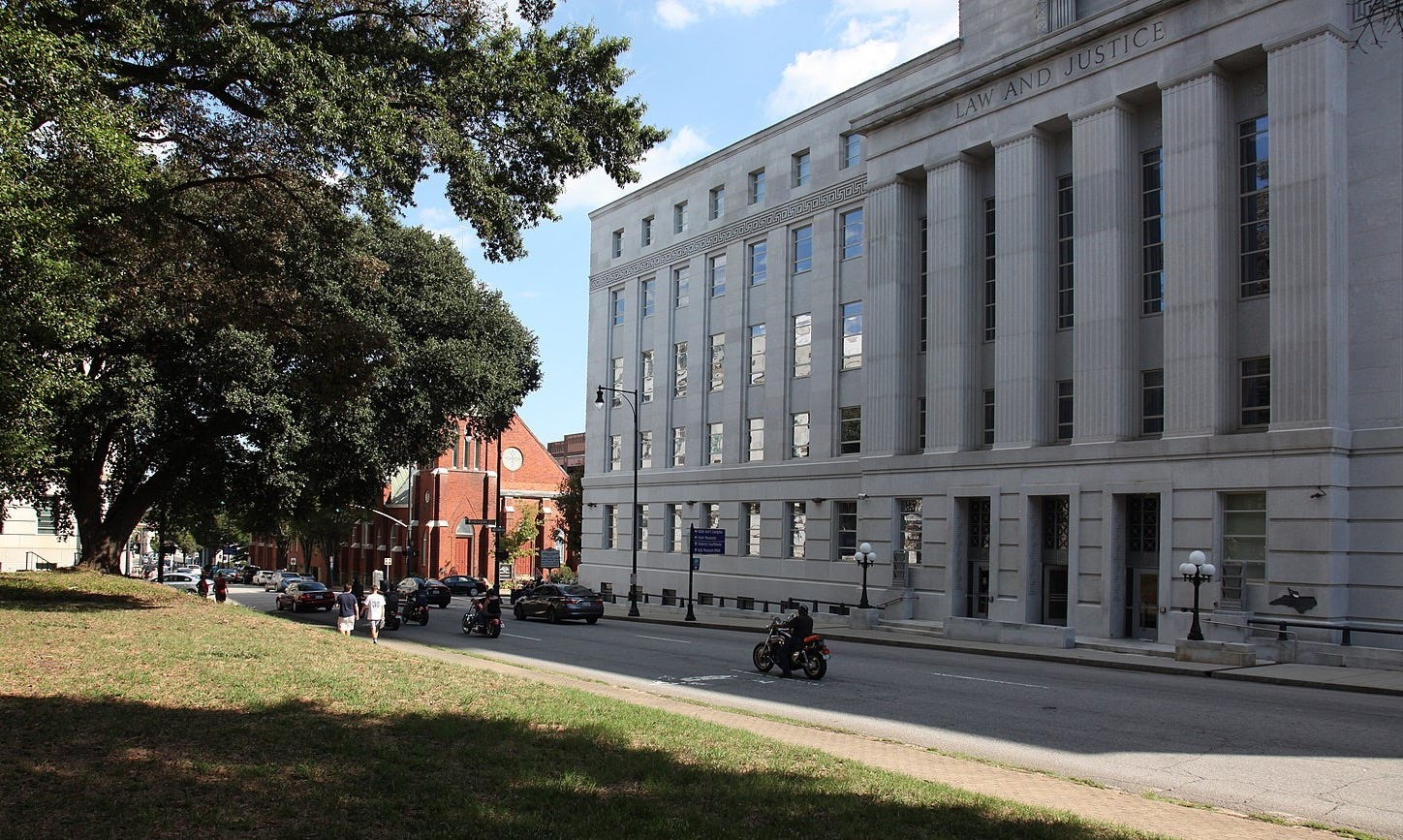Griffin v. State Board of Elections: The Case for (Not?) Invalidating 65,000 Votes
Judge Jefferson Griffin is challenging the votes of more than 65,000 people who cast ballots in his North Carolina Supreme Court race. Who is he challenging and why? Will he prevail?

Foreword: This post was uploaded by Jack Bizzell, Professor Douglas’s undergraduate assistant. Though he received preliminary guidance from Professor Douglas, the work below is his own. Today’s post is one of a two-part series detailing the legal challenge behind North Carolina’s Supreme Court election dispute and Jack’s thoughts on it.
On Friday afternoon, attorneys representing North Carolina judge Jefferson Griffin argued before a North Carolina Court of Appeals panel that over 65,000 votes cast in his state supreme court justice race should be invalidated. Originally a frontrunner in the election, Judge Griffin narrowly lost to incumbent justice Allison Riggs by 734 votes—a margin of 0.01%. After a recount confirmed Riggs’s victory, the North Carolina Board of Elections certified the state’s election canvass on November 26th. Griffin then filed an election protest with the Board. That protest subsequently went everywhere, going from state court to the federal 4th Circuit Court of Appeals and back. Today, Jefferson Griffin’s case awaits a decision from North Carolina’s state court of appeals. Until the courts make a final ruling, there will be no official winner in the state supreme court race—the North Carolina Supreme Court stayed the certification of its results in January.
Looking at Griffin’s initial petition to the N.C. Supreme Court, we can understand his election protest in more detail. Who exactly is he challenging and why does he say their votes should not count?
The bulk of votes that Griffin is challenging—60,273–belong to people whom he says did not provide adequate ID when registering to vote. Since 2004, North Carolina law has required voters to register with their driver’s license number or the last four digits of their social security number.
The state’s Board of Elections, according to Griffin, did not enforce that law until the end of 2023. Before December of that year, the Board required neither a driver’s license number nor an SSN on their online registration portal. As such, voters registered—and voted—without providing identification and the State Board counted their ballots anyway. Though there is a ballot “curing” process, Griffin claims the Board did not legally follow that process for the 60,273 voters he’s challenging. Because of this, he says that these voters were ineligible to vote and the Board was wrong to count their ballots.
Griffin is also challenging the votes of hundreds of voters whom he calls “Never Residents”. These overseas citizens who have never lived in the United States were given the ability to vote by the North Carolina legislature in 2011. Griffin does not contest that state law lets “Never Residents” register. He instead argues that the law enfranchising them is unconstitutional under the state constitution’s voter residency requirement and that “Never Resident” North Carolinians cannot vote in state elections.
Lastly, Griffin is challenging overseas voters more generally. He says that thousands of them did not provide a copy of their identification with their absentee ballots as required by state law. It is true that many overseas voters did not provide an ID when they voted—but this is because the Board of Elections did not require them to do so (the Board, for their part, says state law doesn’t have an identification requirement for overseas voters). Because these people didn’t furnish an ID with their absentee ballots, Griffin believes that their votes are invalid regardless of what the Board told them.
Griffin is seeking to exclude these voters from his election’s results. This request relies on precedent set by the North Carolina Supreme Court in James v. Bartlett. The 2005 case, which involved a dispute over voters who cast ballots outside of their designated precincts, ended with the N.C. Supreme Court excluding more than 11,000 votes from the state’s final election tallies. The Court reasoned that exclusion was necessary because:
“permitting unlawful votes to be counted along with lawful ballots in contested elections effectively “disenfranchises” those voters who cast legal ballots, at least where the counting of unlawful votes determines an election's outcome[.]”
In short, the Court wrote that, to be fair to all voters, unlawful votes must be excluded if those votes change an election’s outcome. Griffin believes that exclusion is also applicable in his case as the votes he’s claiming are unlawful almost certainly determined the outcome of his election.
Jefferson Griffin’s challenges are bold and wide-ranging. He alleges that the State Board of Elections, by counting votes, violated multiple state laws and the North Carolina Constitution. He also alleges that a significant portion of North Carolinians—about 1% of those who voted—shouldn’t have their votes counted. And, to his credit, his attorneys make his arguments seem ironclad. But do they pass muster?
I personally don’t think so. For reasons I will further explain in my next post, the Board’s non-requirement of identification at registration doesn’t necessarily make voters’ ballots unlawful. This is also true regarding the Board’s non-requirement of ID with overseas ballots. Also, Griffin’s argument against “Never Residents” is unique, even among fellow North Carolina Republicans. Perhaps his legal arguments aren’t as clear as he makes them out to be. But even if the state court of appeals panel were to side with Judge Griffin and rule against the state’s Board of Elections, binding precedent from the North Carolina Supreme Court precludes the exclusion of votes in his election.
Though Griffin has a case, it isn’t a strong one. And what Griffin is asking of judges isn’t just anti-democratic. It’s against North Carolina law.




